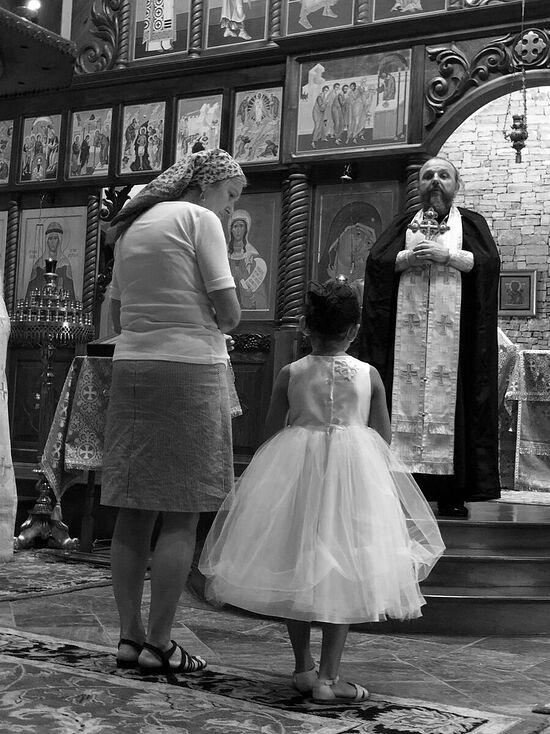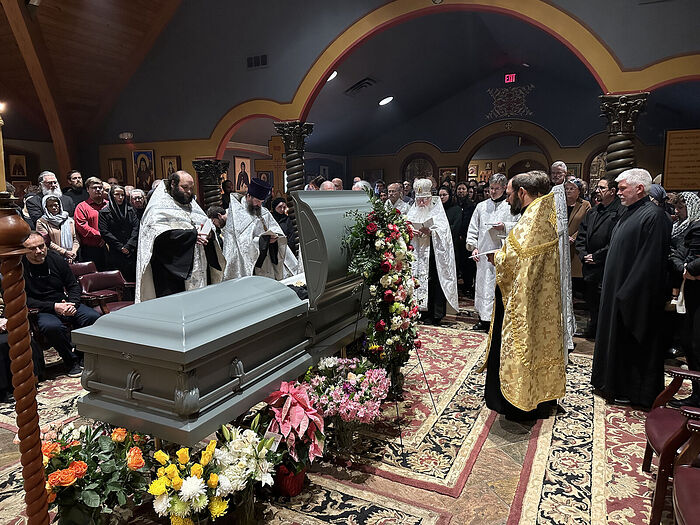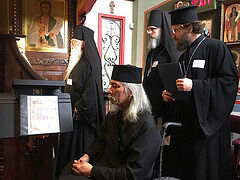I recently attended the funeral of my friend and confessor, Fr. Alexander Lisnichuk, who reposed at the age of sixty. How should the Orthodox Christian regard the relative brevity of his earthly life?
To be sure, death is a tragedy. It is unnatural in the sense that it does not accord with God’s original plan for mankind. However, to those who believe that our conscious existence is not limited to our earthly lives, a relatively short life, in itself, is not necessarily more tragic (except, of course, to those who mourn the loss).
Suppose two men died at the ages of sixty and ninety, respectively. If one’s existence was limited to his earthly life (if, that is, there were no afterlife), then there would be a forty percent difference in their lifespans (i.e., ninety minus sixty, divided by the average of ninety and sixty equals forty percent).
If there is an afterlife, but it is only 100 years in duration (not eternal), then there would be a seventeen percent difference in their total existence (i.e., 190 minus 160, divided by the average of 190 and 160 equals seventeen percent).
If the afterlife was 1,000 years in length, then there would be a three percent difference.
If the afterlife was 6,000 years in duration, then the difference would round down to zero percent.
Now, in the Christian view, the afterlife is everlasting and incomparably more blissful, particularly for those who enter the heavenly abodes. From an eternal perspective, therefore, there is ultimately no difference between the two men in terms of their total conscious existence. What, then, makes for a more tragic life, if not a life that is “cut short”? The answer is a life (however long) in which one lived solely for himself, expending no effort to connect with the Source of life. Such a person dies well before he breathes his last.
I could not ascribe such a life to Fr. Alexander. My church brimmed with mourners, many of whom I have never seen before. He impacted so many lives that parish priests wisely decided to organize shuttle services to the funeral, knowing that our church would not provide enough parking spots to those attending the service.
 At the Baptsim of the author's daughter.
At the Baptsim of the author's daughter.
I am just one of countless people whose lives Fr. Alexander touched. Having lived the truth that our citizenship is not of this world, but in heaven (Phil 3:20), he went out of his way to welcome me, his “Iranian representative,” into my then predominantly Russian church. One of my fondest memories of Fr. Alexander is from the time when I had to leave church early one Sunday. He thought that it was because of something he had said during the time of confession. He stepped away from the altar during the Divine Liturgy in order to call me and ask for forgiveness if he had offended me (obeying, it would seem, Christ’s teaching in Matthew 5:24), whom he always called brother. Of course, he did not offend me (how could he?), but such was his humility and love for his flock.
Fr. Alexander put his trust in me, counseled me with wisdom and empathy, and showed genuine, fatherly love to me and my family. How many more people attending his packed funeral would say the same thing! Therefore, while Fr. Alexander lived a relatively short life, it seems to me that it was a complete one. In that there is cause to rejoice.
May we all live so victoriously, regardless of the duration of our earthly lives.
Memory eternal to Fr. Alexander!


